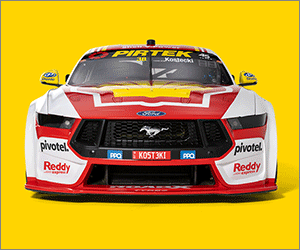Alpine is soon becoming a zero-tailpipe emissions brand, between its range of electric vehicles and hydrogen powertrains, but the French niche brand isn’t totally against traditional internal combustion engines.
Speaking to Dutch publication Autoblog.NL, Pierre-Jean Tardy, Alpine’s chief hydrogen engineer, says that engines themselves aren’t the issue, rather what’s fuelling them.
“The combustion engine is not the enemy, the enemy is fossil fuels,” Tardy said. “You can use the combustion engine with carbon-free fuels. That is the goal of hydrogen.”
When asked if hydrogen-powered combustion engines could be cleaner than electric vehicles, Tardy said, “That depends a lot on where the electricity you use comes from. If it comes from coal, it’s not worth it.”

“You also have to consider the energy, materials and CO2 emissions that are needed to produce the batteries.
“There is clearly no magic solution. The future of mobility is a mix of solutions, a mix of power sources.
“You can’t make the entire market electric. That doesn’t match what customers want either.”
Tardy’s comments come about a decade before Europe bans the sale of new petrol and diesel-powered light vehicles from 2035, and while there are a handful of brands which have already moved away from combustion engines, some – such as Alpine – are trying to keep them alive with hydrogen.

One of the biggest supporters of hydrogen-powered combustion engines is Toyota, with its chairman Akio Toyoda having spearheaded the brand’s push to invest in internally combusted liquid hydrogen as an alternative to petrol.
Prototypes of its GR Corolla and GR Yaris hot hatches have been raced in some low-volume racing series, using hydrogen rather than high-octane unleaded petrol.
Tardy, who worked on Alpine parent Renault’s Formula 1 engines during its period of success with Red Bull Racing in the early 2010s, is one of the engineers behind the Alpenglow, which features a combustion engine running on hydrogen.
Expected to race at the 24 Hours of Le Mans in 2028, it’s rolled out in demonstration form at racing events with a turbocharged four-cylinder and later V6 engine, emitting just water and nitrogen oxide.

“The combustion [engine] itself mainly emits water. If you combine hydrogen with oxygen, you get water,” Tardy said.
“There is another substance that you emit. This substance is also released by diesel and petrol engines and that is nitrogen oxide.
“[…] this pollution can be reduced with different technologies. A very lean mixture helps to keep emissions very low; water injection can also help, and ultimately you could also use after treatment that already exists in passenger cars. It can be very clean.”
Time will tell as to whether Alpine, or any other carmaker, can put a hydrogen-fuelled combustion engine into production.












Discussion about this post